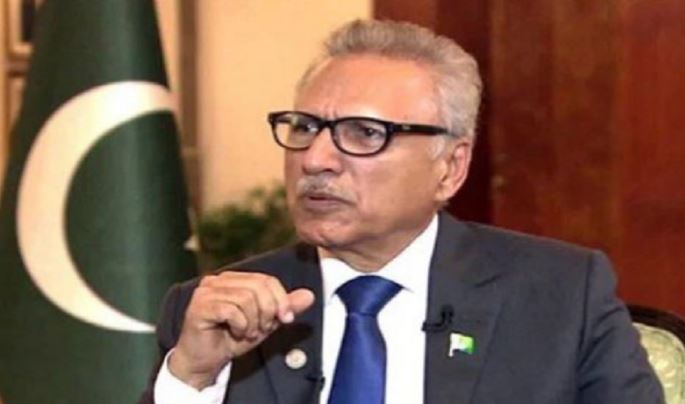
President Alvi refuses to sign election reforms bill
electronic voting machines) and the idea of “I voting” were both first implemented by the administration of Pakistan Tehreek-e-Insaf (PTI). The previous government held the notion that the incorporation of technology into the election process was necessary in order to improve its accuracy and openness. They tried numerous times to get the voting machine bill passed, and they also tried to gain a majority in the parliament; nevertheless, the bill was never successful in getting passed because of opposition. The new government introduced the Election Reforms Bill on Sunday, which included a few amendments to the election rules that had previously been drafted by the PTI government and forwarded to the President to be signed into law. These amendments were proposed by the new government. In his explanation for his decision not to sign the election reforms measure, President Alvi cited the fact that the proposed amendments would have a retrograde effect. In the statement from the President’s Secretariat, Dr Alvi notes that the bill has not been signed by the President.
“Despite the fact that the Constitution, which he staunchly defends, will eventually be codified into law.”
President Alvi refuses to sign election reforms bill
The bill proposing amendments to the I-voting idea as well as voting rights for Pakistanis living outside of the country was sent to the National Assembly and Senate for approval one month ago. Both houses voted in favour of the law, but when it was presented to the President for his signature, he declined to sign it. In most cases, a bill only becomes a law when it has been approved by both houses of Congress and then signed into law by the President. In the event that the president does not provide his approval within the allotted time frame of ten days, it will be assumed that the president has provided his consent.
In response to the President’s decision to veto the bill, the government has requested that the National Assembly and the Senate hold a joint session on June 9 to reconsider the legislation. The President of Pakistan made a reference to paragraph two of Article 75 of the Constitution of Pakistan, which states:
“When the President has returned a Bill to the Majlis-e-Shoora (Parliament), it shall be reconsidered by the Majlis-e-Shoora (Parliament) in joint sitting and, if it is again passed, with or without amendment, by the Majlis-e-Shoora (Parliament), by the votes of the majority of the members of both Houses present and voting, it shall be deemed for the
When applied appropriately, the President of Pakistan believes that modern technology, notably electronic voting machines (EVMs), has the potential to make Pakistan’s electoral process less fraught with misunderstanding, disagreement, and accusations. By utilising the technology, foreign Pakistanis will also be able to participate, which will contribute to the reduction of divisiveness and will create confidence among Pakistanis, ultimately leading to a more transparent electoral process. President Arif Alvi also has the goal of propelling Pakistan’s technological development into the world of the future. President added:
“The current government and any future governments and parliaments would be faced with two choices: whether to allow the past to drag Pakistan down, or whether to allow the lessons from the past and technologies of today to boost us into the bright, progressive, and dynamic future of Pakistan that has been our dream.”
Let’s wait and watch how the joint session of Pakistan’s National Assembly and Senate will interpret the President’s message and how they will plan the country’s future in light of their interpretation.



